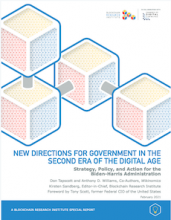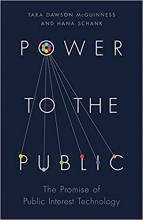
Blog
Friday, April 30, 2021
Highlighting articles and insights that we have found interesting for the week ending April 30, 2021
Thursday, April 29, 2021
Interview with Dr. Rob Handfield, Distinguished Professor of Supply Chain Management at North Carolina State University
Friday, April 23, 2021
Highlighting articles and insights that we have found interesting for the week ending April 23, 2021
Wednesday, April 21, 2021
Ensure security, privacy, autonomy, and citizen-owned identities
Tuesday, April 20, 2021
Is it time to reinvent the roles of the many players in the federal grants management system?
Monday, April 19, 2021
Every once in a while, a new book comes across my desk that is fresh and thoughtful enough to make me wish I had written it.
Friday, April 16, 2021
Highlighting articles and insights that we have found interesting for the week ending April 16, 2021
Tuesday, April 13, 2021
Interview with Sherri Greenberg













